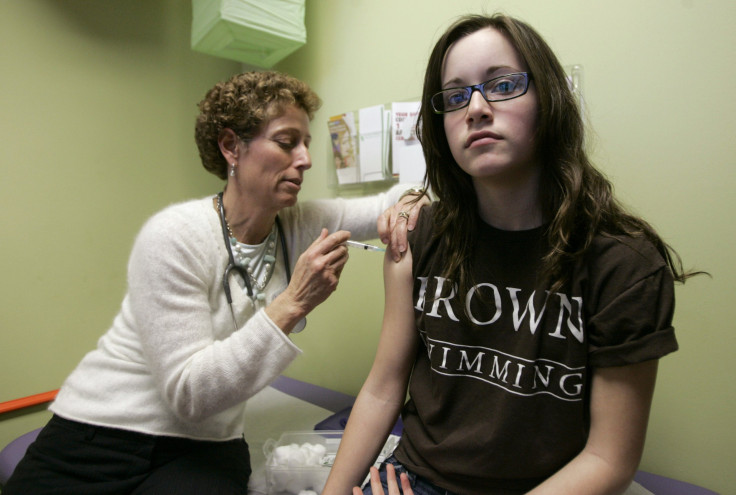Obamacare Women's Health: Not Enough Women Getting Screened For Cervical Cancer Amid New Federal Guidelines

Women in the United States aren't receiving the proper medical treatment when it comes to screening and preventing cervical cancer, one of the most common and deadliest cancers for women. And the federal government may be at fault.
As many as 8 million women who should be screened for cervical cancer have not undergone testing, federal health officials said Wednesday. The survey by the Centers for Disease Control and Prevention found 11.4 percent of women reported they hadn't been screened for cervical cancer in the past five years. More than 25 percent of women without health insurance and 25 percent of those without a regular doctor hadn't had the screenings. Women living in the South and black and Latina women were most likely to forego treatment.
The research was published more than two years after federal officials released new cervical cancer screening guidelines in 2012 advising women that they didn't have to have the procedure done every year. The guidelines recommended women ages 21 to 65 get a pap smear test every 3 years. Women under the age of 21 were told they didn't need the test, even if they're sexually active. Women ages 30 to 65 were told the screenings could be put off every five years. The guidelines also said women under 30 shouldn't be screened for HPV.
The 2010 Affordable Care Act requires that health insurers provide all cancer screenings for free, with no charge to the patient, but the federal guidelines may have created a too lax attitude about screenings, some physicians have said. "To blanketly say in these low risks patients 5 years is appropriate might be a stretch too far," Dr. Sharyn Lewin, an OB/GYN at New York-Presbyterian Columbia University Medical Center, told CBS News. She said women shouldn't skip the annual checkup because it also includes important conversations about sexual health.
The American Cancer Society, meanwhile, recommends that all women begin cervical cancer testing three years after they become sexually active or after the age of 18. "We need to get the women who have not had a Pap smear in the past five years in," Dr. Virginia Moyer, chairwoman of the U.S. Prevention Services Task Force and a pediatrician at Baylor College of Medicine and Texas Children's Hospital, told Reuters Health. "The women who aren't getting screened at all, that's the tragedy."
Cervical cancer can easily be detected and treated if caught early through a Pap smear or a HPV test, but more than half of the women diagnosed with cervical cancer had never or rarely been screened, according to the CDC. Roughly 12,000 women in the U.S. are diagnosed with cervical cancer and nearly 4,000 die from it each year.
"Every visit to a provider can be an opportunity to prevent cervical cancer by making sure women are referred for screening appropriately," CDC Principal Deputy Director Ileana Arias said in a statement Wednesday. "We must increase our efforts to make sure that all women understand the importance of getting screened for cervical cancer. No woman should die from cervical cancer."
A HPV vaccine is another recommend tool against cervical cancer. But the CDC found only 1 in 3 girls and 1 in 7 boys had received the three-dose series in 2013.
All women are at risk for cervical cancer. There are generally no signs or symptoms in early cases, while advanced cervical cancer may cause unusual bleeding or discharge.
© Copyright IBTimes 2024. All rights reserved.












